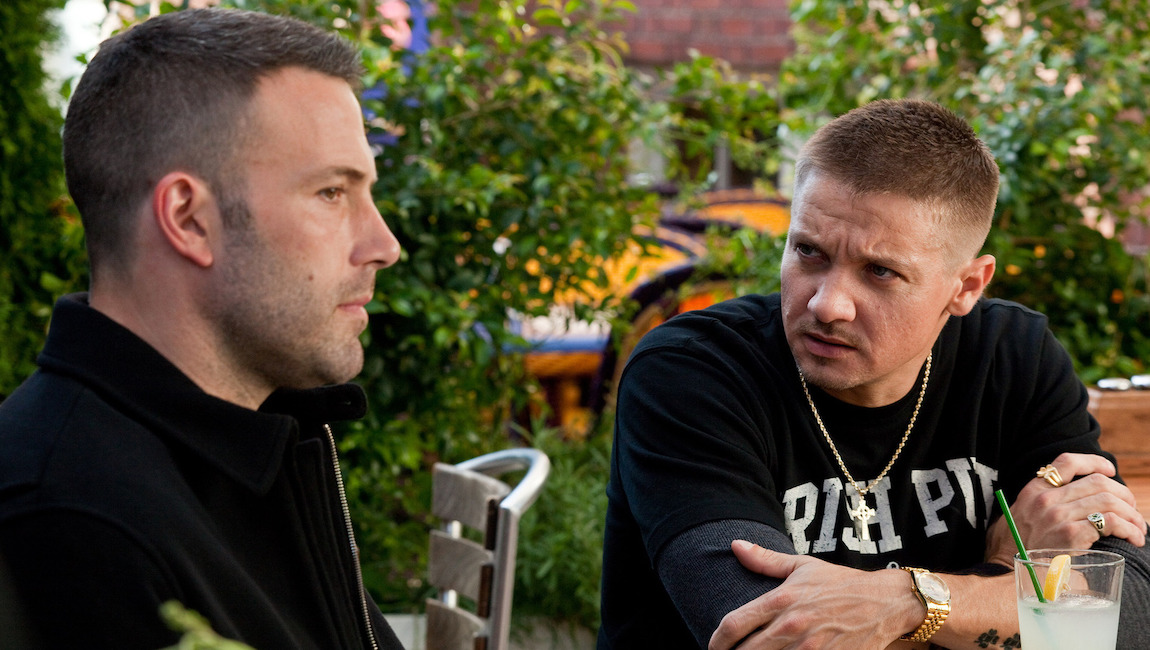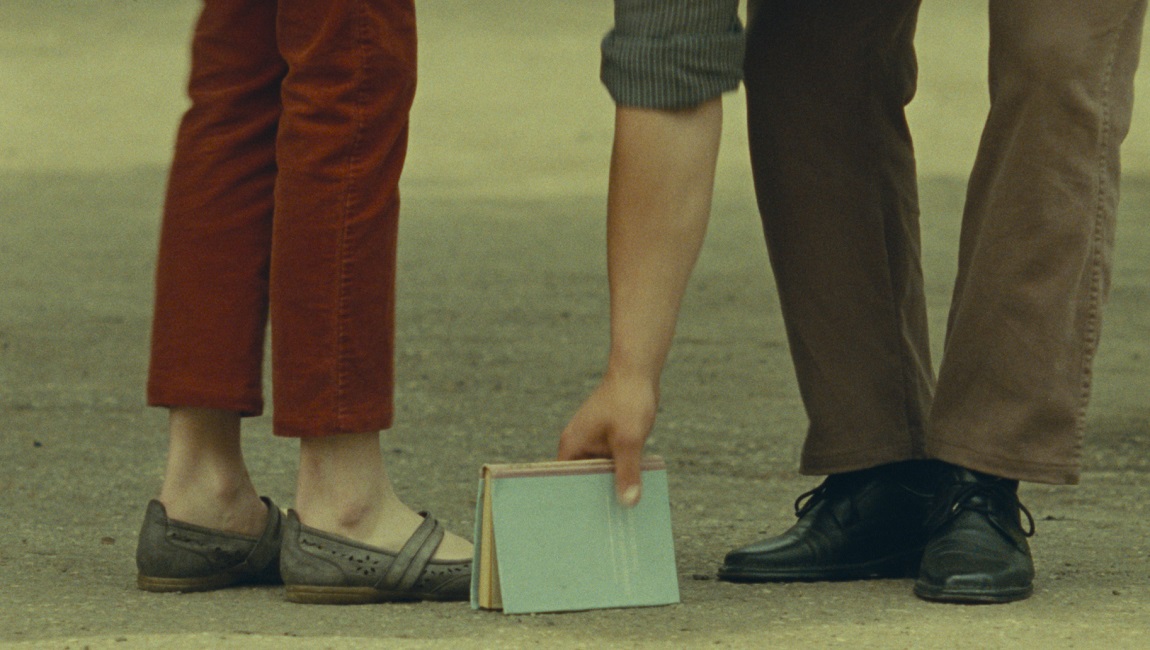The stunning opening sequence of Ben Affleck’s Gone Baby Gone immediately communicates a specific relationship between region and mood. The flawless voice-over narration and lingering shots of street corners and porches draw the viewer into a zone of unique personalities languishing in the space they occupy. Ultimately, the characters in Gone Baby Gone are not defined by goodness or badness, but by the tragic decisions they do or don’t make. Affleck’s superb combination of dialogue set-pieces and bursts of violence enabled him to sustain great pacing in his directorial debut feature, which rightfully branded him a Hollywood filmmaker to watch. But with The Town, a limp crime drama about a crew of thieves working in Charlestown, Mass. (the so-called bank robbery capital of the world), Affleck’s potential as an artist becomes decidedly less apparent.
The writing is on the wall from the very beginning, as Doug McRay’s (Affleck) voice echoes off the edges of the frame in a reflexive bit of narration re: the robbery he’s about to commit. Dressed in ghoulish dreadlocked masks, Doug and his crew rush the building and quickly take control of its contained inhabitants. This bit is supposed to introduce Doug, his best friend James (Jeremy Renner), and their brethren as precise professionals who seek to pull off jobs effortlessly and without incident. Yet the opening robbery in The Town does just the opposite, as James (with painful foreshadowing) turns violent on a dime, sending the entire operation sideways. To ensure their safety from the police, the gang kidnaps stoic bank teller Claire (Rebecca Hall), then dumps her on the side of the road after escaping. It will be the first of many criminal jobs that turn from bad to worse because of genre clichés and simplistic character motivations.
Affleck’s film is more melodrama than action, a prolonged exploration of the hard-bitten attempting to subvert social standings and regain their self-worth. As Doug begins a relationship with Claire after seeing the effect their encounter has on her, James turns to aggression to signify his role as the iconic badass. Every other character, from Jon Hamm’s pouty FBI agent to Blake Lively’s cracked-out floozy, fills a predictable role in the narrative, a pawn in a bland game of one-upmanship. We’ve seen these anti-heroes before in the superior canons of Scorsese, Eastwood, and Lee, and watching Affleck’s imitation is embarrassing. His version of these relationships is completely trite; they’re surface-level interactions that inevitably provide little conflict in a genre mash-up so dependent on it.
What’s most surprising is Affleck’s inability to tap into a vein of interest that runs beneath the surface of The Town. While most crime films rely on currency or goods of some kind, this one briefly examines another, more complex means of driving the plot, one that could have helped to transcend such shoddy material. During one of their initial encounters, Claire asks Doug for advice regarding a key piece of information she’s withheld from the FBI. Doug lays out a manipulative scenario, implying that her life will be difficult if she becomes a witness, and convincing her to wait, even implying physical harm. He ends by saying “You have this card to play, but who says you have to play it now?” Even though Doug obviously likes this woman, he goes out of his way to strip her of power; the scene speaks to the idea that people, no matter how committed to a new relationship, passion, or lifestyle, revert to their true selves when pressed with change. Unfortunately, this concept is rarely addressed; Affleck glides on gloss and convention rather than seamy layers of character conflict.
Ultimately, The Town settles into a haphazard pattern of genre tropes that play out exactly as we expect they will, culminating in one last test of loyalty, a clumsily staged shootout, and a life lesson learned. Affleck has a problem coordinating large-scale action set-pieces, and in this finale he shoots and cross-cuts a la Michael Mann, falling miserably short of that level. His characters and mise-en-scene look like samples of someone else’s art—bad covers of major filmmakers keen on this sort of material. The regional identity, brisk tension, and lasting traumas that made Gone Baby Gone so fascinating are completely absent, and worse, Affleck seems to be right at home embracing this sort of calculated mainstream mediocrity. It may be too early to tell if Affleck will become a great director, but with this complete reversal of cinematic fortune, it’s clear his priorities lie in the middle of the road, far, far away from the challenging ambiguities of his haunting debut.







